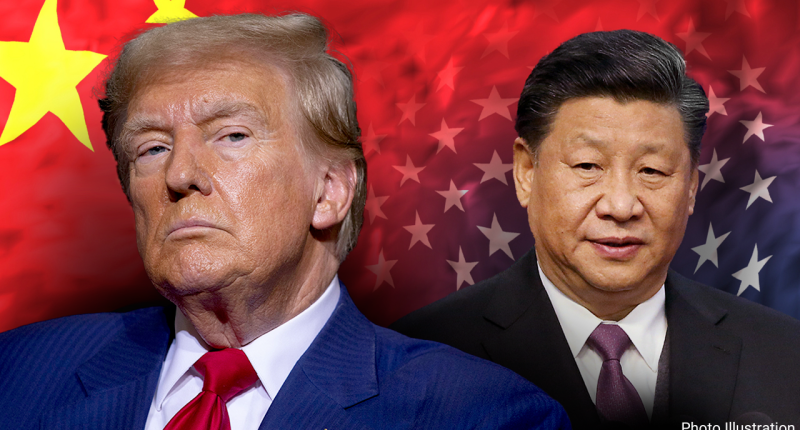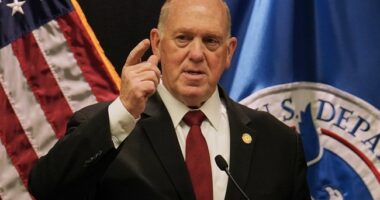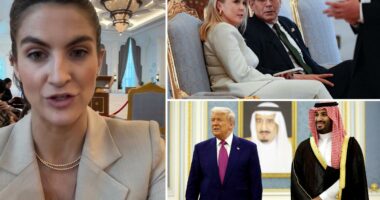Share this @internewscast.com
President Donald Trump successfully negotiated deals worth $2 trillion with Saudi Arabia, Qatar, and the UAE during his recent visit to the Middle East. Some suggest these agreements are efforts to curb China’s influence in the region.
China has been strengthening its economic connections with leading Middle Eastern countries, who have been careful not to take sides amidst the rising geopolitical tensions between Washington and Beijing. In response, Trump may be trying to gain a competitive advantage for the U.S.
However, concerns have arisen since Trump overturned a policy from the Biden administration. This policy had prohibited the sale of AI-capable chips to the UAE and Saudi Arabia, due to fears that these valuable U.S. technologies might end up in the hands of Chinese companies, and by extension, the Chinese Communist Party (CCP).
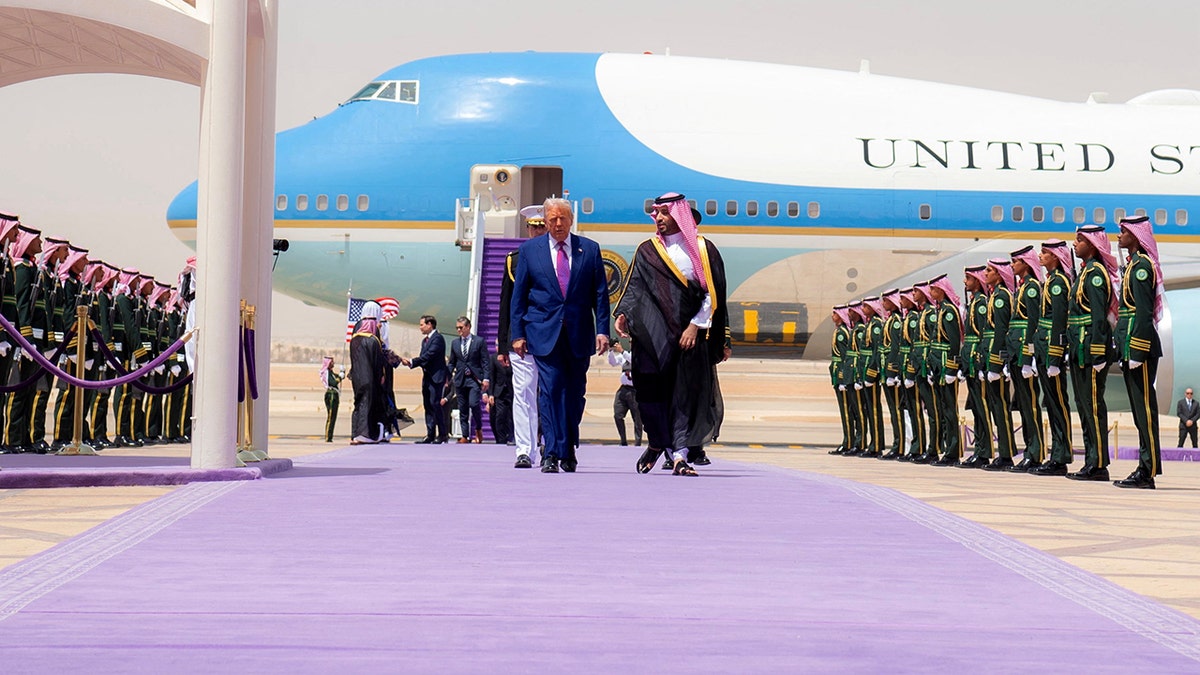
U.S. President Donald Trump walks with Saudi Crown Prince Mohammed Bin Salman during a welcoming ceremony in Riyadh, Saudi Arabia, May 13, 2025. (Bandar Algaloud/Courtesy of Saudi Royal Court/Handout via REUTERS )
By the end of Trump’s trip, the House Select Committee on the Chinese Communist Party had introduced new legislation “to stop advanced U.S. AI chips from falling into the hands of adversaries like the Chinese Communist Party (CCP).”
“The ambition is understandable – drawing the Gulf states deeper into the U.S. tech ecosystem is a logical way to counterbalance China’s growing influence,” Craig Singleton, China Program Senior Director and Senior Fellow with the Foundation for Defense of Democracies told Fox News Digital. “But the devil is in the details.
“Without rigorous safeguards and clear conditions on technology transfer, there’s a real risk of leakage — whether it’s advanced chips, know-how, or access to AI platforms,” he warned. “If these deals lack meaningful restrictions, they could end up strengthening the very actors they’re meant to contain.”
The Commerce Department did not immediately respond to Fox News Digital’s questions on AI security.
While questions remain about the future of AI security, some reports suggested that the expanded U.S. agreements could help cement the U.S. as the global leader in the emerging technology and help shape its landscape.
But China has interests outside of AI in the region that pertain to security, economic and energy sectors – all of which the U.S. has a vested interest in deterring.
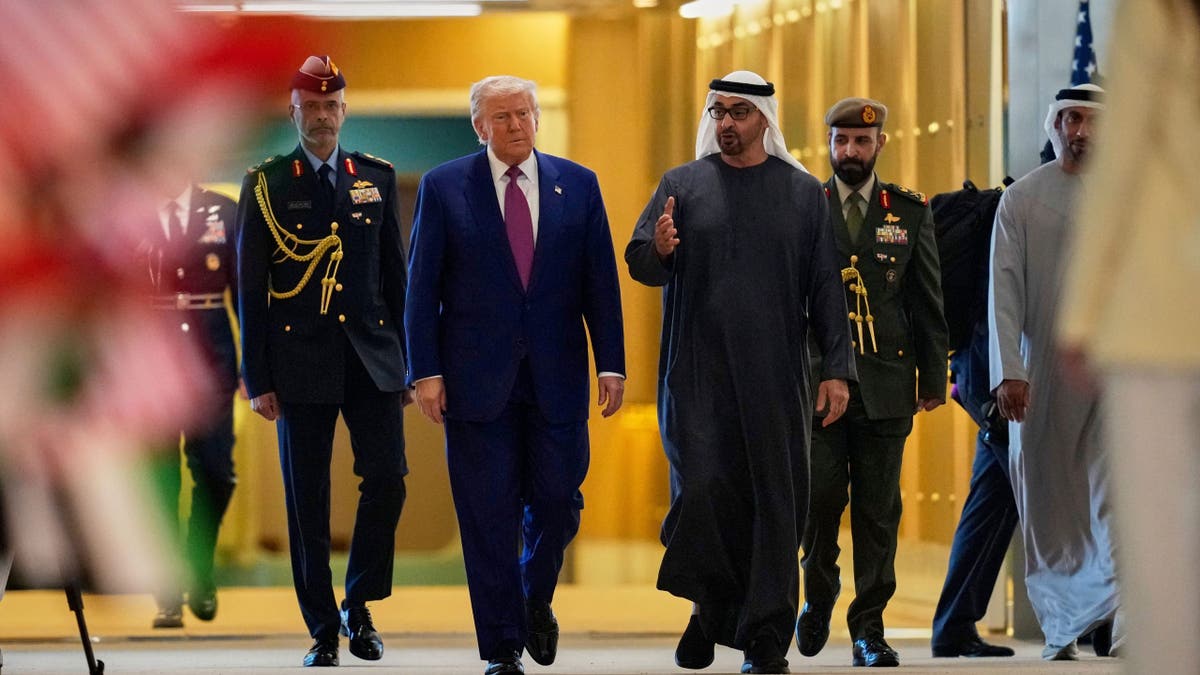
United Arab Emirates President Sheikh Mohammed bin Zayed Al Nahyan greets President Donald Trump at Abu Dhabi International Airport on Thursday, May 15, 2025. (AP Photo/Altaf Qadri)
Trump was the first president in nearly 20 years to visit the UAE, which security experts have told Fox News Digital will go a long way to further not only geopolitical goodwill amid major unrest stemming from the wars in Gaza and Ukraine, but it could even further bolster economic and security opportunities between Washington and Abu Dahbi.
“Trump showing up and re-committing American military and economic power to support the UAE’s stability, security, and success in a dangerous neighborhood can pay real dividends going forward,” John Hannah, former national security advisor to Dick Cheney and current Randi & Charles Wax senior fellow at the Jewish Institute for National Security of America (JINSA), told Fox News Digital.
“Since at least the time of President Obama’s nuclear deal with Iran, there’s been a slow, but noticeable drift in UAE strategy away from its deep reliance on the United States toward more of a hedging policy of playing all sides of the global great game, including an increasingly close relationship with China,” he added.
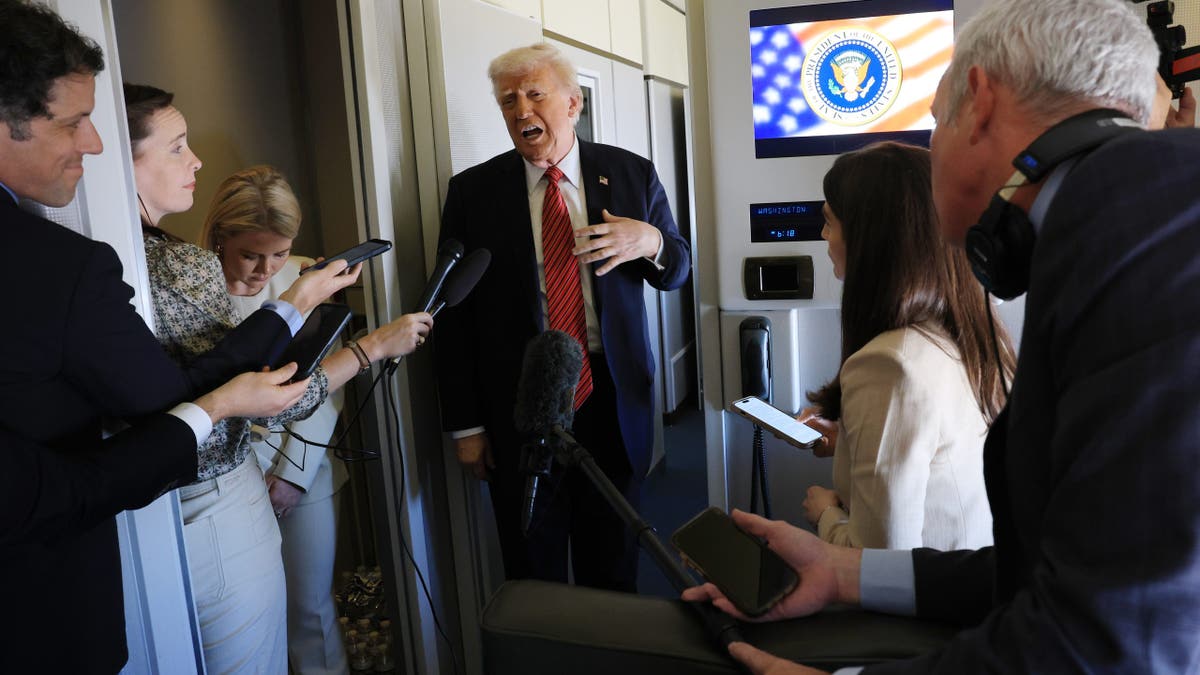
IN FLIGHT – MAY 14: U.S. President Donald J. Trump speaks to travelling media aboard Air Force One on a range of issues, including Syria, as he flies to Doha, Qatar on May 14, 2025. Trump is on the second day of a multi-nation tour of the Gulf region focused on expanding economic ties and reinforcing security cooperation with key U.S. allies. (Photo by Win McNamee/Getty Images)
Hannah explained that a period of American weariness of the Middle East enabled China to effectively expand its geopolitical interests in the vital region.
The expert pointed out that not only does the UAE host U.S. troops on its soil, but its trade value with the U.S. – even prior to the $1.4 trillion deal it reached earlier this year – was worth some $35 billion annually.
“With a country as influential and resource-rich as the UAE, correcting that unhelpful perception and putting the strategic relationship back on a much more positive dynamic is an important goal,” Hannah said.
Fox News Digital could not immediately reach the UAE foreign ministry for comment.
